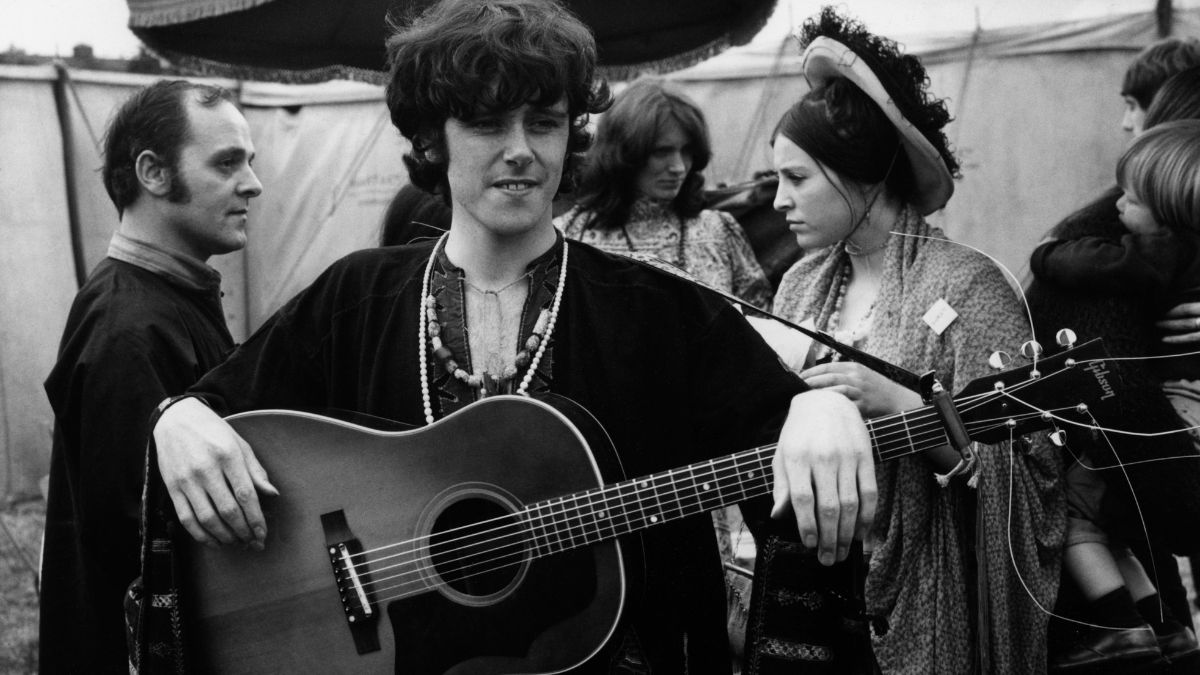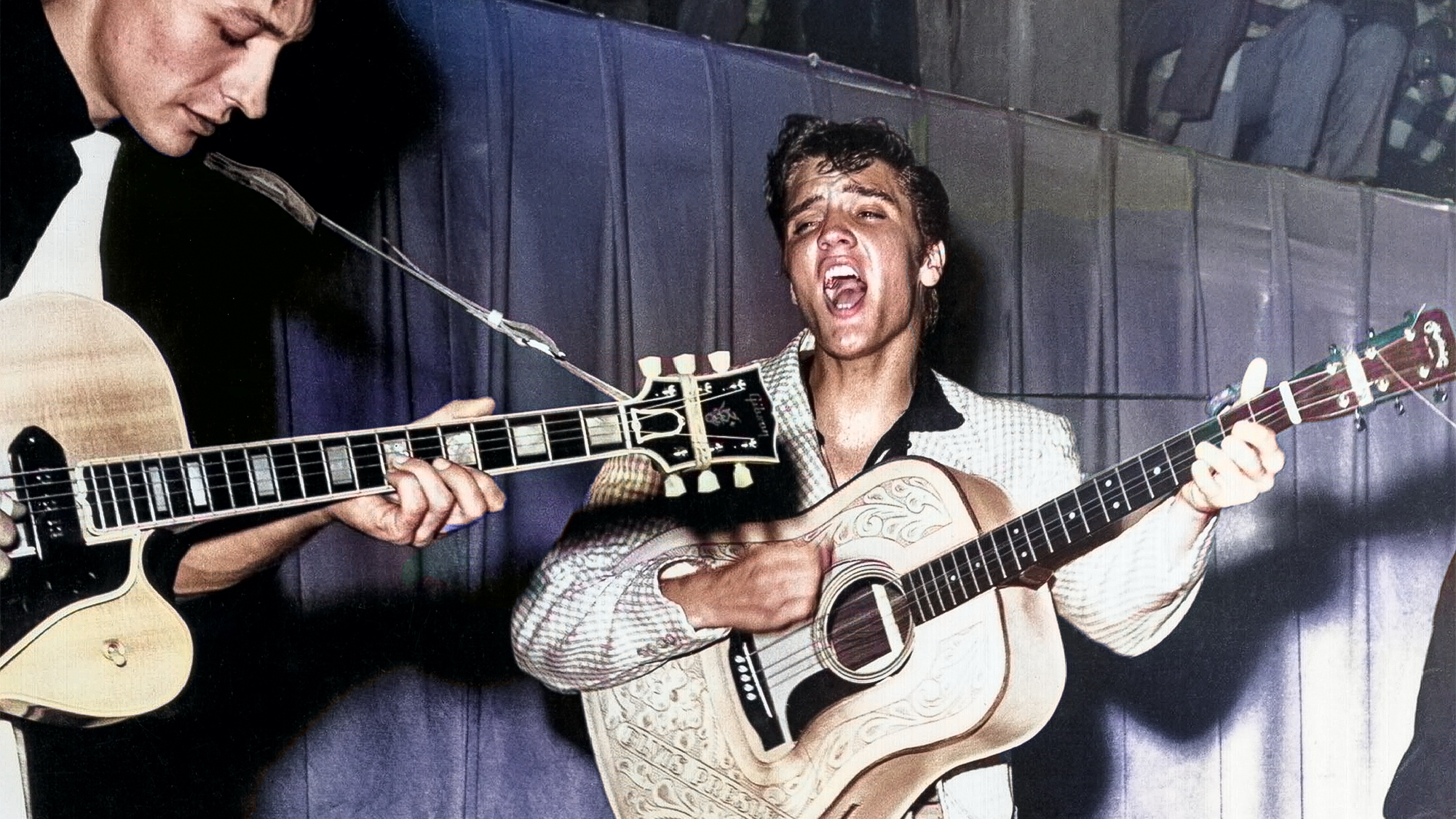“I said, ‘Why’d you buy my cottage?’ He said ‘You wrote all those bloody songs there!’” Donovan says David Gilmour bought his former home to channel his songwriting magic
Asked to name his greatest achievement, the British folksinger name-dropped two of the greatest British songwriters of all time

All the latest guitar news, interviews, lessons, reviews, deals and more, direct to your inbox!
You are now subscribed
Your newsletter sign-up was successful
Scottish folk guitarist Donovan may not be the most famous musician to emerge from the British Isles in the ’60s, but his influence proved vital to a score who went on to eclipse his career. So much so that two household names sought to capture a little of his genius for themselves, while another praised his inventiveness.
Jimmy Page, glam-rock pioneer Marc Bolan, David Gilmour, Nick Drake and Beatles John Lennon, Paul McCartney, and George Harrison all admired his songwriting talents. His genre-blurring work, which fused folk, pop, psych rock, and jazz, became a totem of the flower-power movement.
Other musicians took notice, and for Harrison and Gilmour, in particular, it had a lasting effect on them. They didn't shy away from telling Donovan that.
When Louder Sound recently asked the 79-year-old guitarist what he considered his greatest achievement, he shared something Harrison had said about his music.
“I suggested you could do with blending and fusing styles of music — and write more than just ‘I love you, why’d you make me blue?’ in a popular song," he said.
"I didn’t know what to call that achievement, but I worked it out when George Harrison said, ‘Donovan is a catalyst.’ A catalyst can put two things together and create something completely different.”
The fact that Harrison, who outsold his Beatles bandmates when they embarked on solo careers in the early ‘70s, saw Donovan as an innovator alone is impressive. But he then turned his attention to an interaction he once had with David Gilmour.
All the latest guitar news, interviews, lessons, reviews, deals and more, direct to your inbox!

“He said, ‘You know I bought your cottage?’” Donovan adds, recounting the moment. “I said, ‘Yeah? Why’d you buy my cottage?’ He said, ‘You wrote all those bloody songs there.’
“One song on Sunshine Superman [his third album, from 1966] was called ‘Three King Fishers,’ and he said, ‘When I heard that song, my future with the band I was with' — which I suppose was Floyd — 'I knew my direction.'
“That’s the effect of a catalyst: He bought my cottage. He said, ‘Maybe all that happened there would rub off on me.’”
Gilmour had joined Pink Floyd in 1967, shortly after the group made a peculiar trip to the U.S., where they house-shared with Alice Cooper. That makes it possible Gilmour is referencing his early days with the band here.
The song certainly has the kind of slow-burning, hazy quality that the band would later forge a reputation for with Gilmour at the songwriting helm, although the folk elements are a little out of the Floydian remit.
Later in his career, Donovan had both Jimmy Page and John Paul Jones play on his 1968 track “Hurdy Gurdy Man.” But it was another member of Led Zeppelin who took a leaf out of Gilmour’s book.
“Robert Plant said to me one night, ‘You know I bought your 1965 Aston Martin.’ I said, ‘Why?’ He said, ‘Cause it was so beautiful. You had a headlining put in it [in the car roof] and it was custom-made.'”
Donovan was convinced there was an ulterior motive. When he pushed the singer for the real reason he bought the sports car, he confessed, “Maybe you wrote a couple of songs in that car.”

While Donovan’s contributions haven’t received the attention given to those of his contemporaries, his impact on music in the latter half of the 1960s is evident. Although the folk music scene had long faded long before, he managed to keep it alive not by combining it with folk rock as the Byrds had, but by fusing it with psychedelia and Indian music, making it a distinct facet of the 1960s scene during a time when popular music was branching off into myriad new directions, including hard rock, heavy metal and progressive rock.
Gilmour, meanwhile, has admitted he never resonated with Pink Floyd's prog rock tag, while naming one prog guitarist who can “really do their stuff.”
He's also looked back at how blues players were key influences of his sound, with his infamous vocal-like playing style ultimately born from an inability to shred.
A freelance writer with a penchant for music that gets weird, Phil is a regular contributor to Prog, Guitar World, and Total Guitar magazines and is especially keen on shining a light on unknown artists. Outside of the journalism realm, you can find him writing angular riffs in progressive metal band, Prognosis, in which he slings an 8-string Strandberg Boden Original, churning that low string through a variety of tunings. He's also a published author and is currently penning his debut novel which chucks fantasy, mythology and humanity into a great big melting pot.

